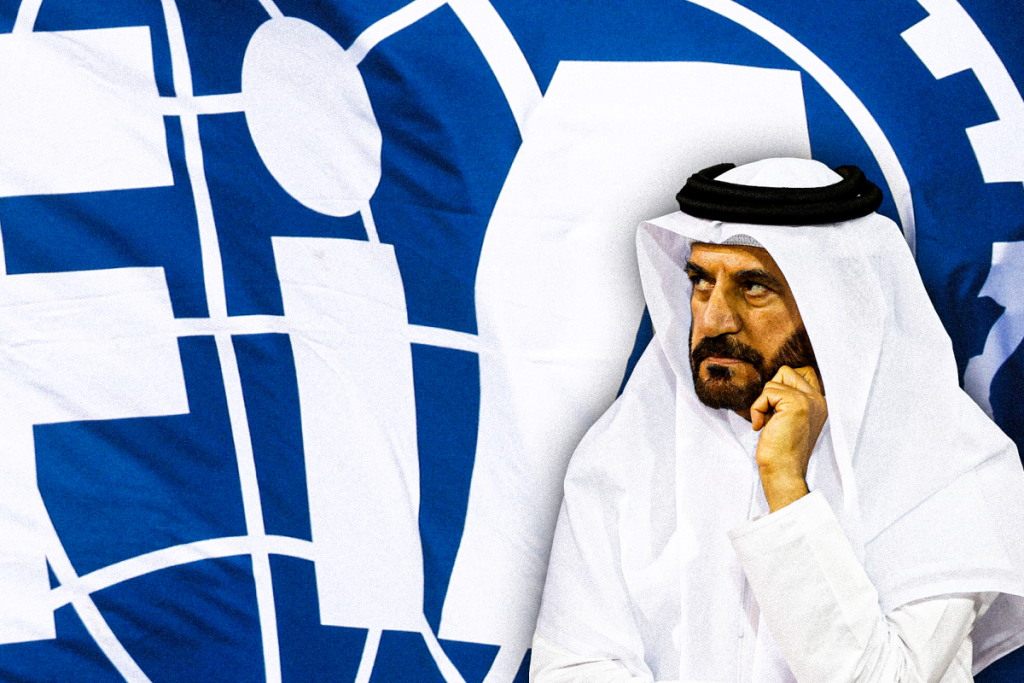Just in

FIA Sees Another Departure As Mohammed Ben Sulayem Feud Reports Emerge
The FIA is experiencing another significant departure, this time involving Paolo Basarri, the former compliance officer. His exit has raised concerns, with rumors circulating that it may be connected to growing tensions within the governing body of Formula 1, particularly a feud with FIA President Mohammed Ben Sulayem.
Basarri’s departure follows reports of internal friction with Ben Sulayem, particularly over conflicting views on certain directives from the president. According to a BBC Sport report, Basarri resisted some of Ben Sulayem’s decisions, which ultimately led to their strained professional relationship. Although Basarri has remained tight-lipped on the specifics of his exit, merely stating, “I cannot comment on this,” the circumstances surrounding his departure seem indicative of deeper issues within the organization.
Complicating the situation, Basarri’s termination was reportedly carried out without following standard FIA procedures. According to sources, the move did not receive the necessary Senate approval, which has raised questions about the governance and transparency within the organization. This departure follows closely on the heels of other notable exits from the FIA, including Niels Wittich, who previously served as the F1 race director. Wittich, who left the role under controversial circumstances, has publicly stated that he did not resign but was, in fact, dismissed. His exit further underscores the broader turnover of high-ranking officials at the FIA in recent months, which has led to growing speculation about the stability of Ben Sulayem’s leadership.
Basarri’s departure also comes in the wake of an investigation into allegations made against Ben Sulayem. These included claims that the president had intervened in the penalty decision for Fernando Alonso during the 2023 Saudi Arabian Grand Prix, overturning a penalty that had been imposed on the Aston Martin driver. Additionally, there were allegations that Ben Sulayem had sought to obstruct the certification process for the Las Vegas Grand Prix circuit. While the FIA ethics committee ultimately cleared Ben Sulayem of any wrongdoing, the controversy surrounding these incidents appears to have contributed to the strained relationship between him and Basarri.
Ben Sulayem’s presidency, which began in December 2021, has been marred by several controversies and ongoing criticism. One of the most significant early challenges for him came from the fallout of the 2021 Abu Dhabi Grand Prix, which sparked widespread debate and backlash over his handling of the race’s controversial conclusion. Since then, his leadership has continued to face scrutiny, with some questioning his management style and decisions. The recent incidents involving Basarri and Wittich are just the latest in a string of leadership challenges that have dogged the FIA under his tenure.
In addition to these internal struggles, Ben Sulayem has also drawn criticism from the Grand Prix Drivers’ Association (GPDA) over various issues, particularly regarding the FIA’s approach to driver behavior and penalties. Recently, both Max Verstappen and Charles Leclerc were penalized for swearing during race weekends, prompting the GPDA to express dissatisfaction with what they viewed as disproportionate punishments. The association has called for clearer guidelines on how such fines are applied and has also taken issue with the FIA’s broader stance on driver conduct.
The GPDA’s criticism extends beyond the issue of language penalties. They have also raised concerns about financial transparency, particularly in relation to the FIA’s fines system. The drivers have asked the FIA to provide more detailed information on how the funds generated from fines are allocated and spent. They argue that financial penalties not only harm the image of the sport but also lack clear justification. The GPDA has also requested that the FIA work more collaboratively with all stakeholders, including the teams and drivers, to determine how and where these funds should be directed, ultimately for the benefit of the sport.
In their statement, the GPDA made it clear that they want to foster a more cooperative relationship with the FIA, but they also highlighted the need for more open dialogue and financial transparency. They emphasized that, as professional athletes, F1 drivers deserve fair treatment and clarity in the application of rules, including those related to fines and penalties. The GPDA expressed its willingness to work with all stakeholders to ensure the continued growth and success of Formula 1, but they also underscored the importance of a more transparent and constructive approach from the FIA, especially under Ben Sulayem’s leadership.
These ongoing controversies and departures from the FIA suggest a period of instability and uncertainty within the organization. With high-profile figures leaving, and tensions mounting between the governing body’s leadership and its key stakeholders, the future direction of Formula 1’s administration remains uncertain. Ben Sulayem’s presidency, once hailed as a new era for the FIA, now faces increasing scrutiny, and the pressure on him to address these issues is mounting. The latest departures and criticisms could signal a turning point for the FIA, as it grapples with both internal challenges and external pressures.




